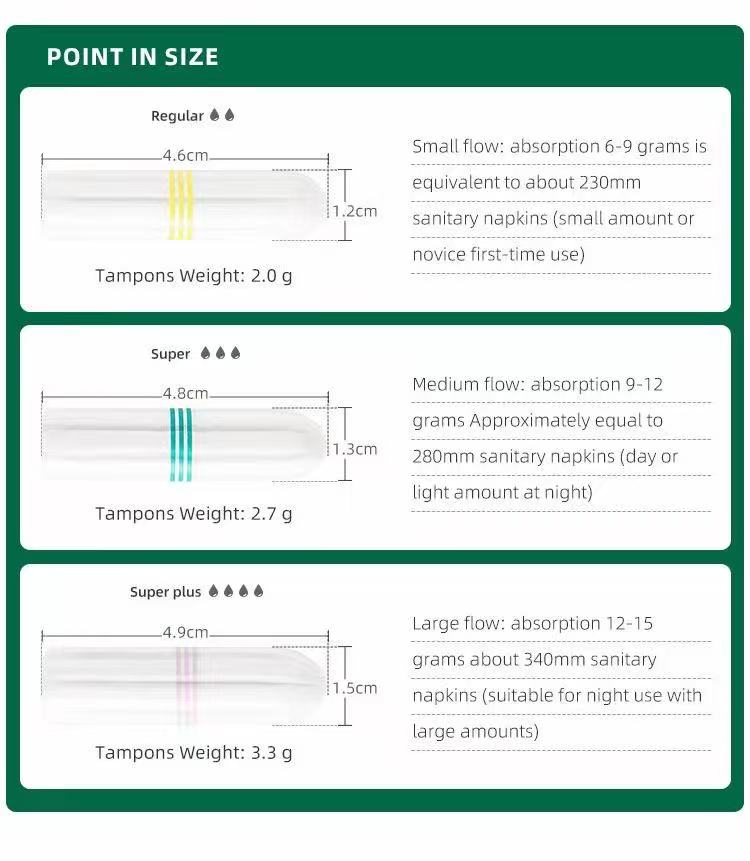Introduction
The global tampon market is entering a new phase of growth and transformation. With consumers demanding safer, eco-friendly, and more innovative solutions, manufacturers and private label brands have an unprecedented opportunity to capture market share.
According to industry forecasts, the tampon market will reach USD 6.78 billion by 2025 and continue growing at a CAGR of 6.8% through 2032. China alone is projected to expand from USD 453.2 million in 2024 to USD 670.3 million by 2030. This fast growth highlights the importance of innovation, sustainability, and quality manufacturing.
At tamponmanufacturer.com, we help businesses tap into this growing industry by offering professional OEM and private label tampon manufacturing solutions that align with the latest market trends.

Key Trends Reshaping the Tampon Market
1. Innovative Product Design
Traditional tampons are being reimagined with spiral absorbency designs, like those introduced by Sequel, which reduce leakage risks and provide better comfort. For brands, offering differentiated tampon designs is now a competitive advantage.
👉 Explore our Full Tampon Manufacturing Process Guide to learn how innovative designs can be brought to life.
2. Sustainability and Eco-Friendly Materials
Consumers, especially Gen-Z, are increasingly eco-conscious. Demand for organic cotton tampons, biodegradable applicators, and plastic-free packaging is growing rapidly. Some manufacturers are even experimenting with seaweed-based materials for improved biodegradability.
👉 Discover the Benefits of Organic Tampons for your brand strategy.
3. Health and Safety Focus
Concerns about toxic metals, BPA, and synthetic fibers are driving consumers toward certified organic, chemical-free, and hypoallergenic tampons. Brands that provide transparent testing and certifications earn stronger consumer trust.
4. Inclusive and Custom Solutions
Today’s tampon buyers are diverse. Manufacturers are introducing:
- Hypoallergenic options for sensitive users
- Super absorbent tampons for high flow
- Compact travel-friendly tampons
- Applicator-free designs for minimal environmental impact
This inclusivity is critical for expanding global markets.
5. Smart & Next-Gen Tampons
The future points toward AI-enhanced and IoT-enabled menstrual products. Imagine tampons that monitor menstrual flow and provide data through mobile apps. While still early, these technologies will define the next decade of innovation.
Why OEM and Private Label Manufacturing Matters
Whether you are a startup brand or a large retailer, choosing the right tampon manufacturer determines your success. At tamponmanufacturer.com, we offer:
- Private Label Solutions: Launch your tampon brand with low MOQ and customizable packaging.
- OEM Services: Develop unique tampon products with exclusive features and formulations.
- Sustainability Integration: Support in sourcing eco-friendly and organic-certified materials.
- Compliance & Certifications: FDA, ISO, and CE certifications to meet global market requirements.
👉 Compare the options in our guide: Private Label vs OEM: What’s Best for Your Business?
Conclusion
The tampon industry is no longer just about basic hygiene—it’s about innovation, inclusivity, sustainability, and consumer trust. Businesses that align with these trends will win in the marketplace.
If you’re ready to launch your tampon brand or expand your product line, partner with us for OEM & private label manufacturing solutions designed to grow your business.
📩 Contact us today to discuss your project and request samples.
FAQ
Q1: What materials are best for tampons in 2025?
Organic cotton, biodegradable applicators, and even seaweed-based materials are emerging as the top choices for eco-conscious consumers.
Q2: Can I create my own tampon brand with low MOQ?
Yes! We provide private-label tampon solutions with flexible minimum order quantities, perfect for startups and niche brands.
Q3: Are organic tampons safer than regular ones?
Organic tampons are free from chlorine, synthetic fibers, and harmful chemicals, making them a safer choice for sensitive users.
Q4: How do OEM tampons differ from private label tampons?
- OEM = custom-designed products (unique features, formulas, packaging).
- Private Label = pre-developed products branded with your logo.
Q5: What certifications should tampon manufacturers have?
Look for FDA approval, ISO standards, CE certifications, and organic certifications to ensure product safety and compliance.
